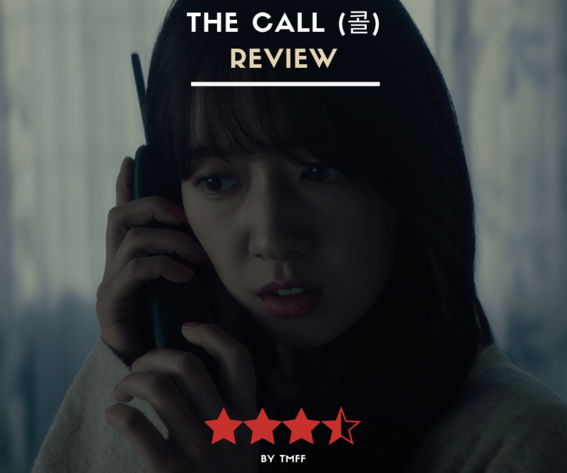The Call (콜) is a 2020 South Korean film somewhat based upon a British film from 2011 named The Caller. How much in terms of plot they have in common, I couldn’t exactly tell you. What I can tell you is that the premise of the movie is quite interesting, as long as you don’t look too deeply into it, and The Call remains quite entertaining throughout, although there are many things I would have personally gone about very differently.
The story starts with Kim Seo-yeon coming back to her childhood home in a rural area of South Korea, and being startled by an old telephone which starts to ring. What is even more peculiar is that the repeated calls that she receives are from a distressed woman, who apparently is living in the same house that Kim Seo-yeon finds herself in, but in 1999. The two young women seemingly decide to just go along, and they end up discussing various aspects of their lives. and it emerges that the woman from 1999, Oh Young-sook, lives together with her shaman mother, who is described as an extremely strict figure. The dynamics between Oh Young-sook and her mother reminded me a little about the premise in Stephen King’s Carrie, and although the plots and themes greatly deviate after a point, they retain some core similarities.
❝A bit too overly reliant on plot twists and shock value.❞
What I found most disappointing was that the ability to reach out between the present day and 1999 via a phone call is never explained in any way, shape or form – nothing paranormal, nothing sci-fi, nothing magical – we’re just supposed to accept it and move on. The problem here might also stem from my side, because whenever something like this happens, I like to try to peer into the why rather than just explore what impact the new element will have on the story. Also, Dark recently spoiled me when it comes to time travel, so perhaps it has also made me more inquisitive when it comes to such a scenario.
The Call remains generally quite entertaining and unpredictable when it comes to small details – the main storyline can still be guessed with relative ease. It would be hard to fit into a specific genre – sometimes it’s more of a psychological thriller, other times it veers into horror and even a couple of action sequences towards the end. It’s quite diverse, and keeps coming up with new scenarios, although at one point I feel it became a bit too overly reliant on plot twists and shock value. And none more so than the post-credits scene, which does the film tremendous injustice and simply should not exist. So if you do watch it, turn it off once the credits roll, and consider your involvement with the film to be done and dusted. And this is really not a case of personal preference – if you take a look at the user reviews on IMDb, you will notice that most of them have the same comment about the post-credits scene.
❝The plot seems to give up on itself at times, completely omitting certain facets.❞
I think that, all things considered (save for the aforementioned scene), The Call is certainly a solid film. Considering how borderline unwatchable many of Netflix films are, The Call is without doubt one of the good ones. It gets most things right up to a point, and the performances of both Park Shin-Hye and Jong-seo Jun are super solid, complex and layered. It’s just that the plot seems to give up on itself at times, completely omitting certain facets, while subsequently forgetting a number of plot points, and having a questionable method of progressing those it does touch upon recurrently. Would I wholeheartedly recommend it to anyone opening up their Netflix in search of something good no watch? No. But if you’re a fan of dark psychological thrillers, and you don’t mind getting a half-arsed explanation a number of key plot points, then feel free to go ahead with it.










Leave a reply